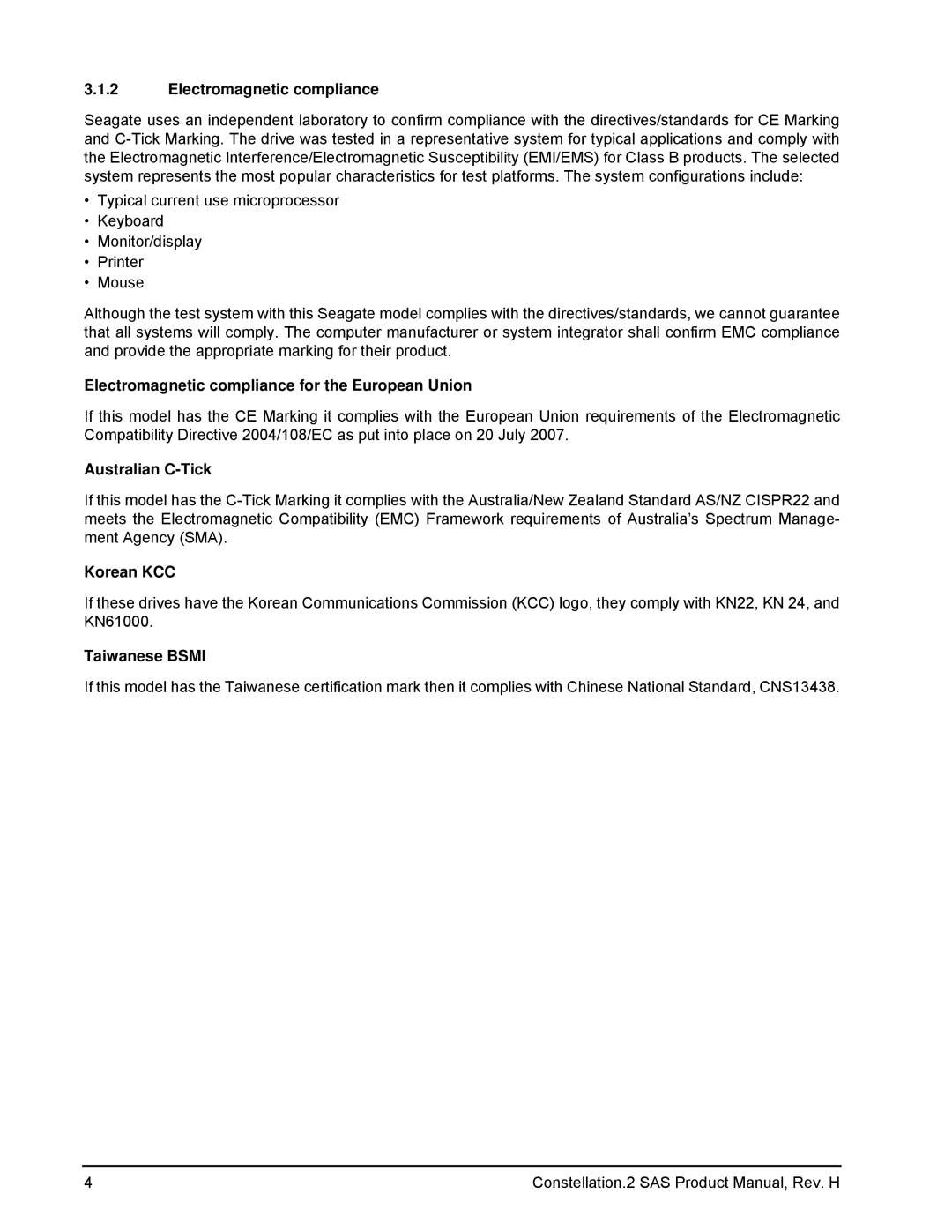3.1.2Electromagnetic compliance
Seagate uses an independent laboratory to confirm compliance with the directives/standards for CE Marking and
•Typical current use microprocessor
•Keyboard
•Monitor/display
•Printer
•Mouse
Although the test system with this Seagate model complies with the directives/standards, we cannot guarantee that all systems will comply. The computer manufacturer or system integrator shall confirm EMC compliance and provide the appropriate marking for their product.
Electromagnetic compliance for the European Union
If this model has the CE Marking it complies with the European Union requirements of the Electromagnetic Compatibility Directive 2004/108/EC as put into place on 20 July 2007.
Australian C-Tick
If this model has the
Korean KCC
If these drives have the Korean Communications Commission (KCC) logo, they comply with KN22, KN 24, and KN61000.
Taiwanese BSMI
If this model has the Taiwanese certification mark then it complies with Chinese National Standard, CNS13438.
4 | Constellation.2 SAS Product Manual, Rev. H |
